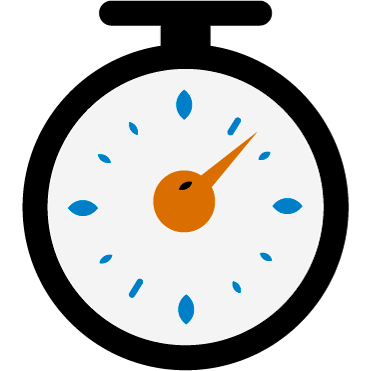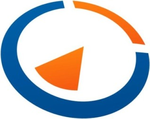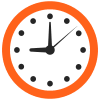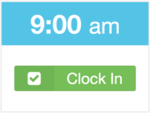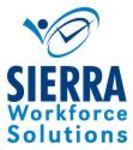What Is Time Clock Software?
Time Clock Software is a technical solution that simplifies and automates employee time tracking and attendance. This software can be placed on PCs, tablets, or mobile devices, allowing employees to easily clock in and out, while also giving businesses with precise and real-time data on employee work hours. Time Clock Software has a number of features to make time monitoring easier, such as biometric fingerprint or facial recognition, GPS tracking, and even configurable shift scheduling.
This enables the accurate and hassle-free recording of employee work hours, removing the need for manual timekeeping systems and lowering human error. Managers can use Time Clock Software to effortlessly track staff attendance, breaks, and overtime while also generating complete data for payroll processing. This not only saves time and resources, but it also assures that payroll calculations are correct and avoids potential errors.
In addition to attendance tracking, most Time Clock Software includes functions like employee scheduling, leave and absence management, and performance tracking. These capabilities give employers a comprehensive perspective of their personnel and help to expedite management processes. With the growing trend of remote and flexible work arrangements, Time Clock Software now provides remote time tracking alternatives, allowing employees to clock in and out from anywhere, lowering the danger of time theft and providing employers with a clear picture of their employees' work hours.
Investing in time clocks Software may help organizations of all sizes by streamlining time tracking operations, delivering reliable data, and encouraging efficient labor management. As a buyer, you must examine your business requirements and select software that provides the necessary functionality at a competitive price to ensure your organization's success.
What Are The Recent Trends In Time Clock Software?
Time clock software has become an essential tool for organizations of all kinds, providing a simple and precise way to track employee work hours. With the ongoing growth of technology and the changing work environment, time clock software has changed to meet the demands of modern enterprises.
Here are some current trends in time clock software that purchasers can consider when making a buying choice.
1. Cloud-Based Solutions: In recent years, there has been a trend toward cloud-based time clock software. This enables firms to access the software from any device with an internet connection, making it ideal for remote teams or personnel who must clock in and out from many locations. Cloud-based solutions provide real-time updates and seamless connection with other business tools.
2. Mobile Functionality: As remote work and the use of mobile devices in the office become more common, time clock software with mobile compatibility has grown in favor. This enables employees to clock in and leave via their smartphones, making the procedure more convenient and effective. Furthermore, some time clock software includes GPS tracking to assure accurate time records for staff working on-site or in the field.
3. Biometric Authentication: Traditional time clock systems frequently use manual input or swipe cards to record employees' time. However, biometric verification, such as fingerprint or facial recognition, is gaining popularity in time clock software. This not only removes the possibility of buddy punching and other fraudulent acts, but it also results in a more accurate and automated time tracking system.
4. Advanced Reporting And Analytics: Using time clock software allows you to track and analyze time data. Recent innovations in this software category include extensive reporting and analytics features that give firms important information about their employees' time and attendance. This can assist uncover patterns, optimize timetables, and increase overall productivity.
5. Integration With Payroll And HR Systems: Time clock software is no longer merely a tool for recording work hours. It is now part of a larger HR and payroll system, allowing for smooth data transfer and reducing manual entry. This integration speeds up the payroll process and decreases the possibility of human error, saving organizations time and dollars.
Benefits Of Using Time Clock Software
Time clock software is an invaluable tool for businesses of all kinds, helping them to effectively manage their employees' time and attendance. This program automates the process of recording hours worked, overtime, and breaks, allowing managers and HR experts to focus on other vital responsibilities. But what specific benefits can time clock software provide?
Let's dive in and look at the top benefits of using this vital tool.
1. Accurate And Reliable Tracking: One of the most major advantages of employing time clock software is the ability to precisely and consistently measure employee work hours. Manual time monitoring solutions, such as paper timesheets or punch cards, are susceptible to human mistake and fraudulent timekeeping. However, time clock software employs cutting-edge technology to overcome these inconsistencies and give precise payroll and attendance data.
2. Streamlined Payroll Processing: Time clock software eliminates the need to manually compute how much time an individual has worked because it does it automatically. This considerably saves the time and effort required for payroll processing, ensuring that employees are paid appropriately and timely. It also eliminates the possibility of errors and disagreements with employees regarding their compensation.
3. Improved Efficiency And Productivity: Time clock software enables employees to clock in and out swiftly and conveniently, minimizing the amount of time they spend on administrative activities. This, in turn, boosts their productivity because they can devote more time to their actual job tasks. Furthermore, managers and HR professionals save time by not having to manually track and calculate employee hours, which allows them to focus on other important responsibilities.
4. Customizable Features: Time clock software provides a variety of customisable capabilities to satisfy the specific requirements of each business. These may include features for tracking different forms of leave, requesting time off, and managing timetables. Businesses can also set up automatic notifications to notify them when an employee is approaching overtime or has surpassed their permitted breaks, which helps to maintain productivity and reduce excessive extra spending.
5. Improved Compliance And Legal Protection: Using time clock software can also help firms avoid legal concerns linked to labor law compliance. The software properly counts hours worked and breaks, ensuring that enterprises comply with all current labor rules. This not only protects the organization from potential legal implications, but it also fosters workplace fairness and transparency.
Important Factors To Consider While Purchasing Time Clock Software?
When it comes to selecting the best time clock software for your organization, numerous criteria must be considered. These factors can have a big impact on your time tracking system's efficiency and accuracy, eventually influencing your bottom line.
To help you make an informed decision, below are the most important elements to consider when selecting time clock software.
1. Operating System Compatibility: One of the first things to evaluate is if the time clock software is compatible with the operating system you already use. This is especially important if you are using an older machine, as not all software will be compatible. Check the system requirements before making a purchase.
2. Time Tracking Features: The primary function of time clock software is to precisely track employees' work hours. As a result, it is critical to select software that includes a diverse set of time tracking capabilities such as clock-in/clock-out, breaks and lunches, overtime calculations, and automatic time rounding. This will allow for accurate and effective recording of employee working hours.
3. User-Friendliness: Time clock software should be simple to use, especially for non-technical personnel. Look for software with a basic, straightforward interface that requires little training. This will save you both time and resources in the long run.
4. Payroll Integration: If your company uses a payroll system, it is critical to select time clock software that connects effortlessly with it. This eliminates the need for manual data entry, lowering the likelihood of errors and saving time for your HR team.
5. Mobile Accessibility: With the increase in remote work and mobile devices, having time clock software that can be accessed from anywhere is critical. Look for software with mobile apps or web-based solutions that offer flexibility and convenience to both in-office and remote personnel.
6. Security: Time clock software stores sensitive employee information such as hours worked, salary, and personal details. As a result, it is critical to select software with strong security mechanisms in place to secure this information from cyber threats or illegal access.
7. Customer Assistance: When problems happen, having dependable customer assistance is critical for minimizing disruptions to your time tracking system. Look for software vendors who give 24-hour support and have a reputation for offering quick and effective assistance.
What Are The Key Features To Look For In Time Clock Software?
When choosing time clock software for your business, it is critical to examine crucial features that will help you streamline your time tracking and management operations.
The following are the top features to look for in time clock software:
1. Time Tracking: The primary objective of any time clock software is to accurately record employees' working hours. Look for software that enables employees to effortlessly clock in and out, logs breaks and overtime, and supports a variety of clock-in methods, including biometric, web-based, and mobile.
2. Integrations: A good time clock software should be compatible with your current HR, payroll, and accounting applications. This ensures a smooth data transfer and eliminates the need for manual data entry, saving you time and reducing errors.
3. Reporting And Analytics: The program should have strong reporting features that can provide insights into attendance, leave, and overtime statistics. This information can help you make data-driven decisions about staffing, budgeting, and scheduling.
4. Employee Self-Service: Allowing employees to examine their own time sheets, request time off, and make schedule modifications can minimize managers' administrative burden and increase transparency.
5. Compliance And Security: Look for software that adheres to labor laws and regulations such as the Fair Labor Standards Act (FLSA) and the General Data Protection Regulation (GDPR). It should also include security features like role-based access controls and data encryption to safeguard sensitive employee information.
6. Customization And Scalability: A decent time clock software should be adaptable to your individual business requirements and scalable as your firm grows. This contains configurable fields, shift management, and multi-location support.
7. Mobile Accessibility: In today's mobile workforce, it is critical to have time clock software that is usable on the move. This enables employees to clock in and out from any location, allowing managers to track attendance even while they are not in the office.
Why Do Businesses Need Time Clock Software?
Time clock software has become an indispensable tool for enterprises of all kinds, from small start-ups to major corporations. This new technology is intended to streamline and automate the time-tracking process, resulting in several benefits for both businesses and individuals. One of the primary reasons why organizations use time clock software is to precisely measure employee working hours.
Manual timekeeping methods, such as traditional punch cards or paper timesheets, are prone to human error and time fraud. Time clock software solves these difficulties by utilizing advanced biometric scanning or GPS tracking to assure accurate and dependable time records. Furthermore, time clock software can greatly minimize the administrative workload for HR and payroll departments.
It automatically calculates and records employees' working hours, removing the need for manual calculations. This not only saves time, but also decreases the possibility of errors and anomalies in paychecks. As a result, businesses can reduce labor costs and increase overall efficiency. Furthermore, time clock software gives real-time information about employee attendance and work hours.
Managers can check the system at any moment to see who is clocked in, on break, or absent. This enables improved workforce management because managers can rapidly identify and address any attendance difficulties. Furthermore, time clock software frequently includes extra capabilities such as scheduling, leave management, and overtime tracking.
These technologies can assist firms in maximizing their personnel, ensuring compliance with labor laws, and avoiding unnecessary overtime costs. Finally, time clock software provides a safe and unified platform for storing sensitive employee information. Businesses may be confident that their employees' information is safe and safeguarded by using various security measures such as encryption and access controls.
How Much Time Is Required To Implement Time Clock Software?
The implementation time for time clock software varies depending on the program and your company's requirements. The process can take anywhere from a few days to several weeks. The first step in adopting time clock software is to gather employee information and create the required accounts and permissions within the software. This process may take several days, particularly if you have a big number of employees or multiple locations.
Next, you must tailor the software to your specific business requirements. This may entail establishing various departments, pay rates, and shift patterns. Depending on the complexity of your workforce and the software's features, this phase could take a week or two. Once the program is configured, you must train your personnel on how to utilize it. This can take a few days, but the duration can vary depending on how easy and user-friendly the software is.
Following the initial setup and training, you may need to make changes and fine-tune the software to better meet your company procedures. This step might last from a few days to a week, depending on the level of customization necessary. Overall, time clock software implementation might take anywhere from a week to a month, depending on the size and complexity of your firm. It is critical to plan and allocate enough time for the installation process to enable a smooth transition and optimal use of the software's functionality.
What Is The Level Of Customization Available In Time Clock Software?
Time clock software provides a variety of customization options to meet the specific demands of different enterprises. These features increase not only the user experience, but also the accuracy and efficiency of time tracking and payroll processing. When choosing time clock software for your organization, understanding the level of flexibility available is critical for making an informed decision.
One of the most popular customization options in time clock software is the ability to configure different clock-in methods, such as biometric, pin codes, or proximity cards. This enables organizations to select the most appropriate choice based on their workers' work environments and corporate policies. Another important customization feature is the ability to create several sorts of shifts and assign them to individual employees or departments.
This enables accurate tracking of hours spent and simple scheduling of rotations or multiple work schedules. Additionally, time clock software frequently provides customisable leave and time-off policies, including as paid time off, sick leave, and holidays. These policies can be adjusted to meet the company's laws and are instantly reflected on employee time sheets. Another useful feature is the ability to customize overtime rules based on your company's needs.
This provides customized computations for overtime hours, double time, and rates tailored to individual departments or work positions. Some time clock software also lets you to create custom reports and dashboards that track specific data and metrics like labor expenses, staff attendance, and productivity. This level of personalization enables firms to gather useful information about their personnel and make data-driven decisions.
Furthermore, businesses can frequently tailor notifications and alerts for late or missing punches, assuring prompt and accurate timekeeping. This tool can also be used to send reminders about forthcoming shifts or time off requests. Finally, time clock software allows for extensive customization to meet the specific requirements of various enterprises.
Which Industries Can Benefit The Most From Time Clock Software?
Time clock software has become an essential component of workforce management for companies of all sizes. Its capacity to expedite employee time tracking and automate payroll processes has swiftly made it a must-have tool in a variety of businesses. However, certain industries may profit more from this software than others.
Let's explore, we'll look at which industries can profit most from Time Clock Software.
1. Retail Industry: The retail industry is known for having a significant number of hourly employees, making employee time monitoring an important part of business operations. Time Clock Software reduces the need for manual time recording, lowering errors and giving precise data for payroll processing. It also helps managers to organize shifts and monitor employee attendance, resulting in more efficient staffing and lower labor expenses.
2. Healthcare Industry: The healthcare business, with its complex staffing needs and shift schedules, can tremendously benefit from Time Clock Software. By automating time tracking and scheduling, healthcare institutions may keep accurate records of employee hours and assure adequate staffing for patient care. Additionally, the software's compliance functions assist healthcare firms in adhering to labor laws and regulations.
3. Service Industry: Cleaning companies, landscaping companies, and repair services all employ a mobile workforce that is continuously on the move. Time Clock Software with mobile monitoring features enables employees to clock in and out of their devices, providing management with real-time data to correctly measure their employees' hours. This tool allows organizations to track the productivity of their employees and ensure that projects are completed on schedule.
4. Manufacturing Industry: In the industrial industry, where personnel work in shifts, reliable time tracking is essential for payroll processing. Time Clock Software offers a full solution for tracking employee hours, such as clocking in and out, breaks, and overtime. It also provides real-time statistics on production time, allowing managers to track productivity and make informed decisions to improve workflow procedures.
5. Educational Industry: The education industry employs a broad workforce, including instructors, staff, and part-time workers. Time Clock Software makes time tracking easier for these employees, assuring accurate and efficient payroll operations. It also allows schools and colleges to comply with labor rules and regulations, such as tracking student employee hours and monitoring teachers' overtime hours.
Conclusion
Finally, selecting the appropriate time clock software for your organization is a critical decision that can have a significant impact on its efficiency and production. When weighing your alternatives, make sure to examine your individual demands and budget, evaluate the features and functionalities provided, and look for high-quality customer service.
Don't forget to consider elements like usability, dependability, and security to provide a smooth and secure experience for both employees and employers. Following these suggestions and completing comprehensive research will allow you to confidently select the best time clock software that suits your organization's specific needs and streamlines your time tracking operations. Remember that investing in reliable and appropriate time clock software is both a wise business decision and a useful asset to your company's success.






